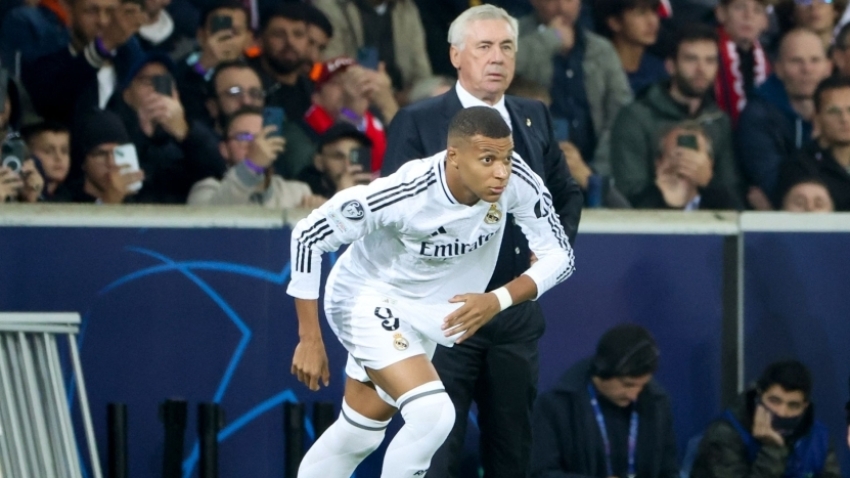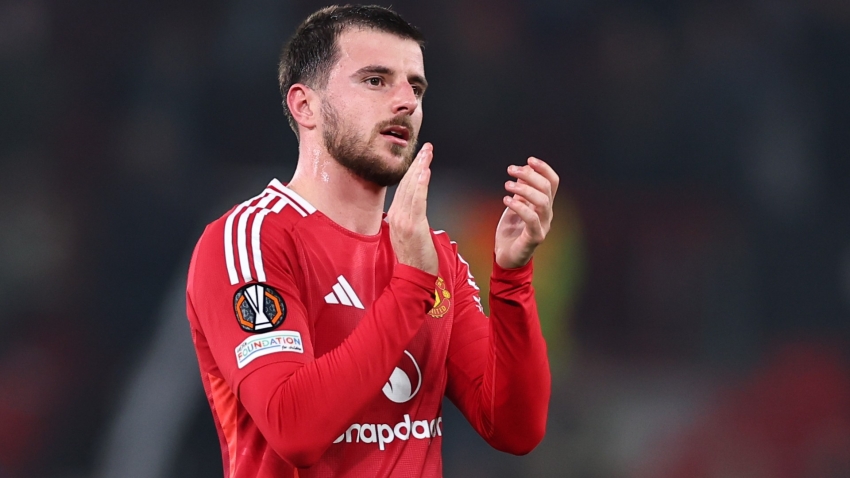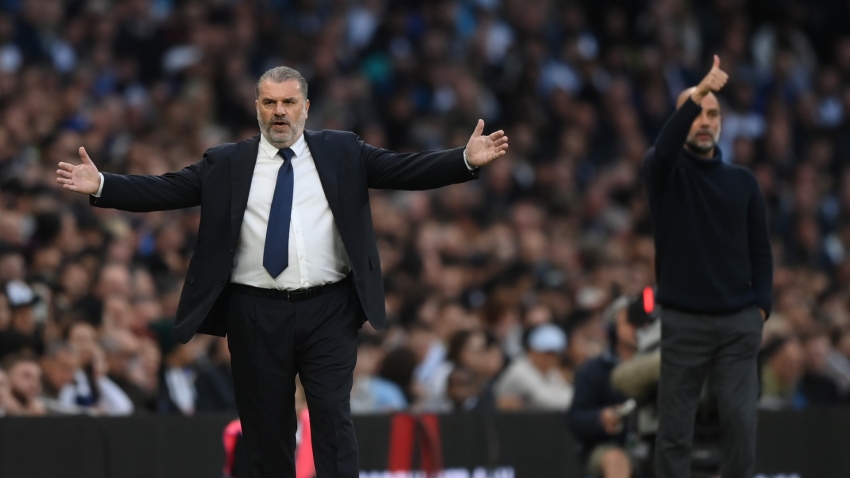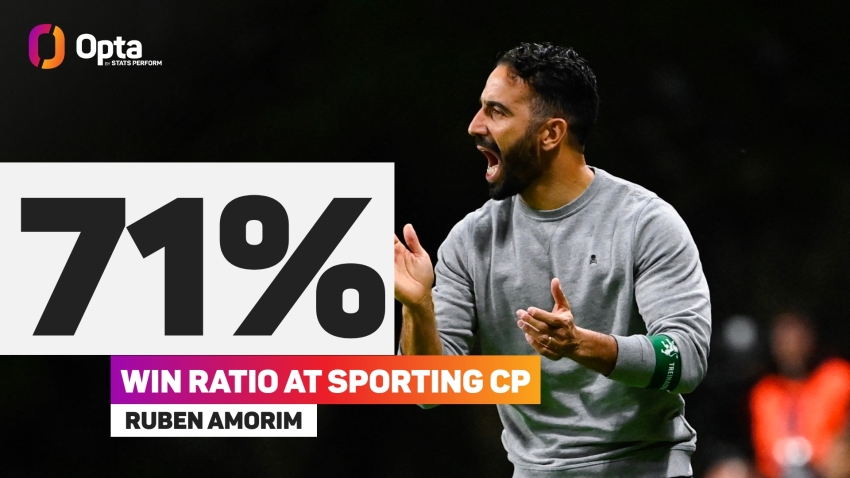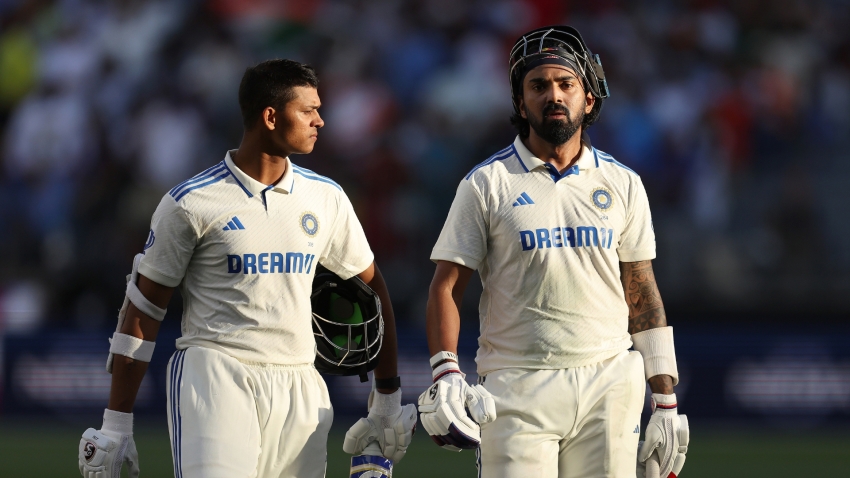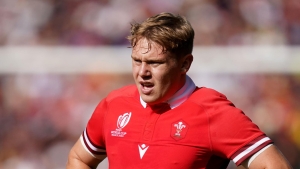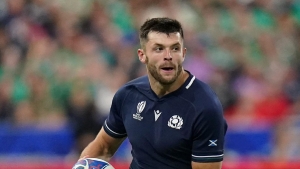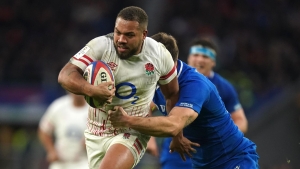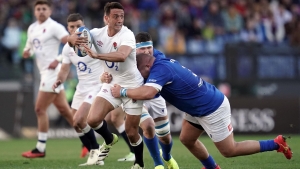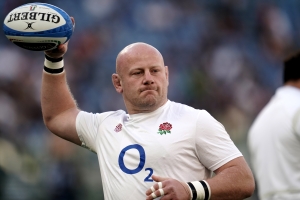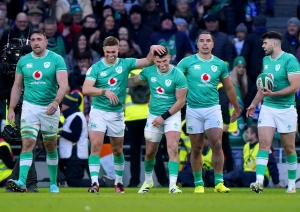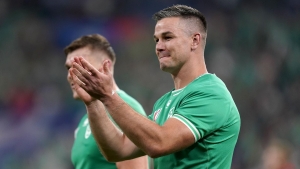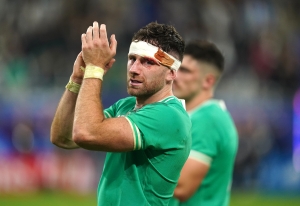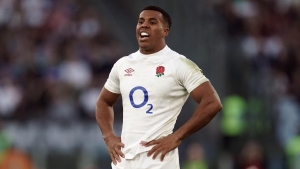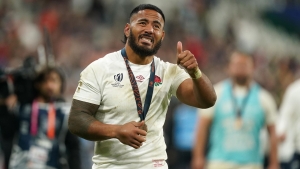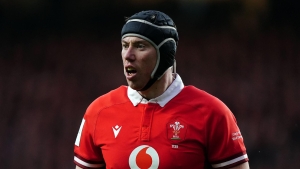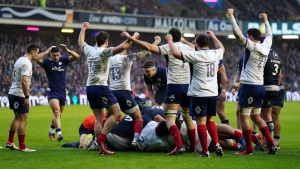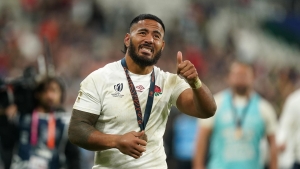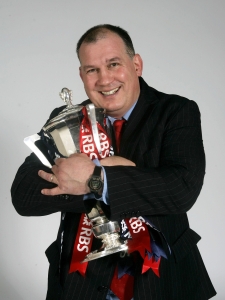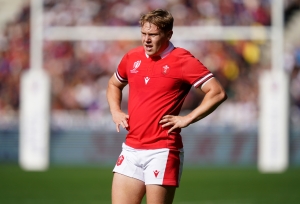Immanuel Feyi-Waboso knew the time to choose between England and Wales would come but not quite so soon.
Less than a year after helping Taunton Titans escape relegation from National League One, the 21-year-old Exeter wing made his Test debut in the Guinness Six Nations.
Whether he would commit to England or Wales became a matter of urgency when he began shredding defences for the Chiefs in his first season in the Gallagher Premiership.
View this post on Instagram
A post shared by Exeter Chiefs (@officialexeterchiefs)
Born and raised in Cardiff, he qualifies for England through his grandmother, and the tug of war for his allegiance began when he was first called by Steve Borthwick in November.
By January, his mind was made up and he was picked in Borthwick’s squad for the Six Nations with his first cap against Italy following soon after.
“The first conversation I had with Steve was after Northampton away and that wasn’t even a good game for me. That was a terrible game for me!” Feyi-Waboso said.
“He rang me after that and said I’m on his radar. I was really shocked at the call and I kind of thought he was just saying I’m in his mind, but obviously I’m here now.
“It’s always been something to think about. I moved to England. A lot of my family are English.
“My grandmother [Margaret Spence Taylor] is English, lives in Gloucester. My dad [Andrew] is half-English and my mum’s Nigerian.
“As soon as I got into England it was a decision to think about, but I thought it would be a lot further in the future.
“I blocked out a lot of the noise (around the decision). I have a lot of good people around me, like family. They helped my decision and definitely didn’t force my hand. It was definitely my decision.”
Feyi-Waboso’s availability was considered a formality by Wales, but they underestimated the strength of his English ties and determination to study medicine.
Despite being awarded three A stars for his ‘A’ levels, he was unable to secure a place at Cardiff University and having then enrolled at Aston University, the financial collapse of his club Wasps placed him in limbo.
The Chiefs provided him with a new home and a place at Exeter University, where he is able to pursue his true calling.
“I enjoy learning, it’s what I enjoyed even before rugby. If I wasn’t playing rugby, my ideal situation would be just to stay in uni, keep learning, keep going,” he said.
“But obviously being a doctor is a career of constant learning. You don’t really stop. You do five years in uni, then you have two foundation years, then specialise … it’s not boring.
“I feel like learning is now habitual. It’s just something that I really want to do – become a doctor.”
Balancing his medical course with the demands of playing for Exeter and England takes careful planning, and he is being assisted by team doctor Katy Hornby.
“I have an exam in a couple of weeks. So I might have to go back for that, do the exam, then come back to the Six Nations,” he said.
“I also have an exam three days after we come back from France so I’ll be revising. It can be a lot to think about, but you make timetables and you manage – you do manage.
“And there’s a lot of help around – I’m going to do some exam prep with the [RFU] doc.”






